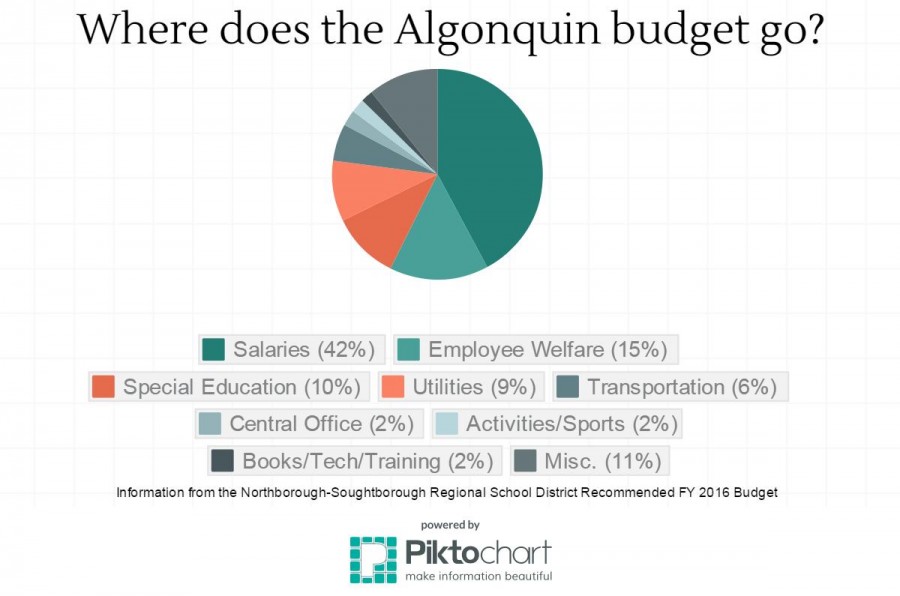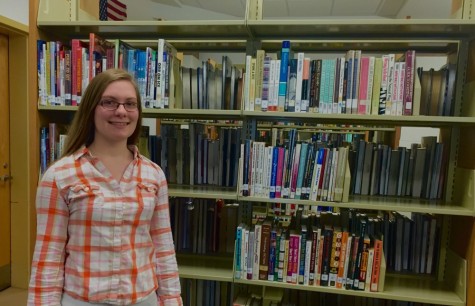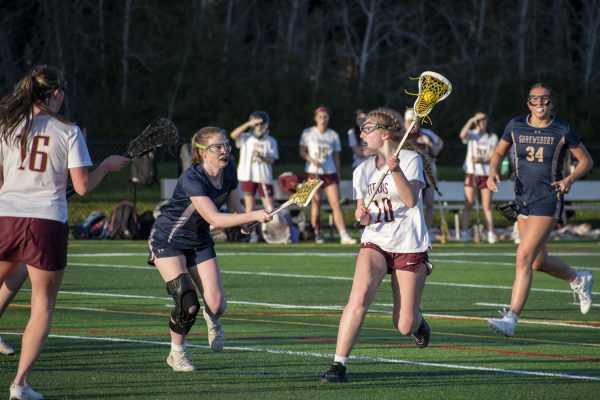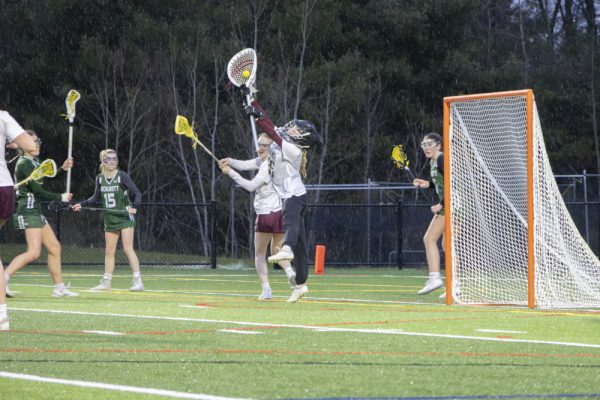District budget increase not enough to cover costs
April 29, 2015
The recommended budget for Algonquin’s 2016 Fiscal Year will increase class sizes and impact spending on books and technology.
While the recommended budget for FY 16 is a half million increase from the operating budget of FY 15, at approximately 20 million, it is a half million decrease from the preliminary budget for FY 16.
“When decreases are spoken about, it’s about the visionary preliminary; we are increasing yearly in the actual budget,” Superintendent Christine Johnson said.
“We are fortunate to have consistency of funding,” Johnson said. “The linear increases are a guarantee for students that existing classes will still exist in the future.”
Though the operating budget has continued to increase by steady amounts, the necessary cuts from the preliminary to the recommended do take a toll.
“The big number to me is five hundred ten thousand dollars,” Principal Thomas Mead said. “That is the deficit, the amount we had to find for the coming year.”
According to information provided by Johnson, there will be a 3.4 reduction in full time employees, which refers to teaching positions.
According to Mead, that loss will be spread out across departments so that the impact will be minimized.
“Class sizes are going to go up slightly across every department,” Mead said.
Johnson shared that the decreased budget will also affect the purchase of new books and technology.
“There is a lag in the purchase of technology and books,” Mead said. “[The increase is] not going to zero, [it’s] just not as many as we’d planned.”
“Some years we can’t buy all the textbooks we want,” Johnson said.
One of the solutions to this problem Johnson shared was the use of online textbooks.
“We have a classroom set and a few extras, so we only need [to buy] 26, not 200,” Johnson said.
Another money saving strategy Algonquin has employed is energy efficiency.
“Electricity and heat equal about .5 million,” facilities director Mike Gorman said. “If we save 10 percent, we save $50 grand, and the money goes back to the books.”
Even though Algonquin is making its best effort to save money, funding that it needs simply is not there.
“State support [for bussing] was less, zero percent increase,” Mead said.
“It’s almost one million dollars for bussing,” Mead said. “The state was originally going to pay for all, now it’s 54 percent. We have to pay for the other half.”
As Algonquin receives some state funding for busses, it cannot charge a bus fee. In order to cancel the difference, it instituted a parking fee.
According to information provided by Johnson, the parking fee will remain at $100 per student per semester. However, students who buy a permit halfway through a semester will only have to pay $50. There will also be a family cap on parking fees of $100 per semester for the first child’s parking permit, and $50 per semester for each subsequent child’s parking permit.
The activity fee will remain at $50 per year per student, but a family cap of $100 will be instituted. Athletic fees will remain at $200 per sport, but a family cap of $900 per year will be instituted.
Though these measures will limit revenue, Johnson hopes that students will be more inclined to purchase a parking permit halfway through semesters, and that students will be able to participate in more sports.
In order to ensure a strong proposal at the town meetings, plenty of time is given to prepare.
“At the beginning of September we start talking about next year’s budget,” Johnson said.
“There is a budget season, with timelines for all of this stuff,” Mead said.
In order to create a budget of accurate line items, estimates of what each department needs are collected.
“I look at records of books and past budgets and keep the wishlist within parameters,” math department head Diane DeSantis said.
“In June, once I know the final numbers, I give budget sheets to the teachers, and they tell me exactly what they need,”science department head Lorraine Zanini said.
“[The] collaboration piece is so strong because once the regional budget is approved, we are set no matter what the state does; assessments per town can change, but the budget is good,” Johnson said.






















